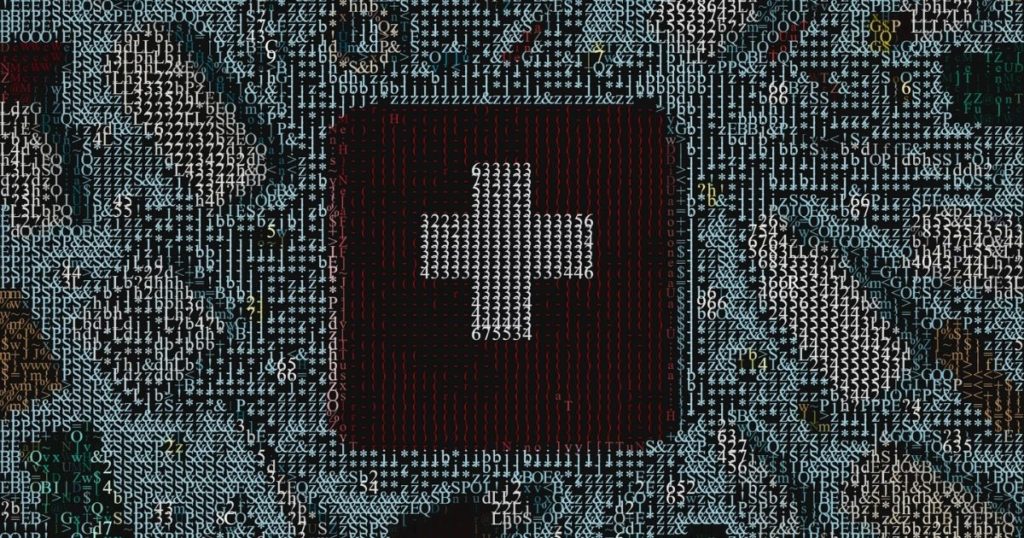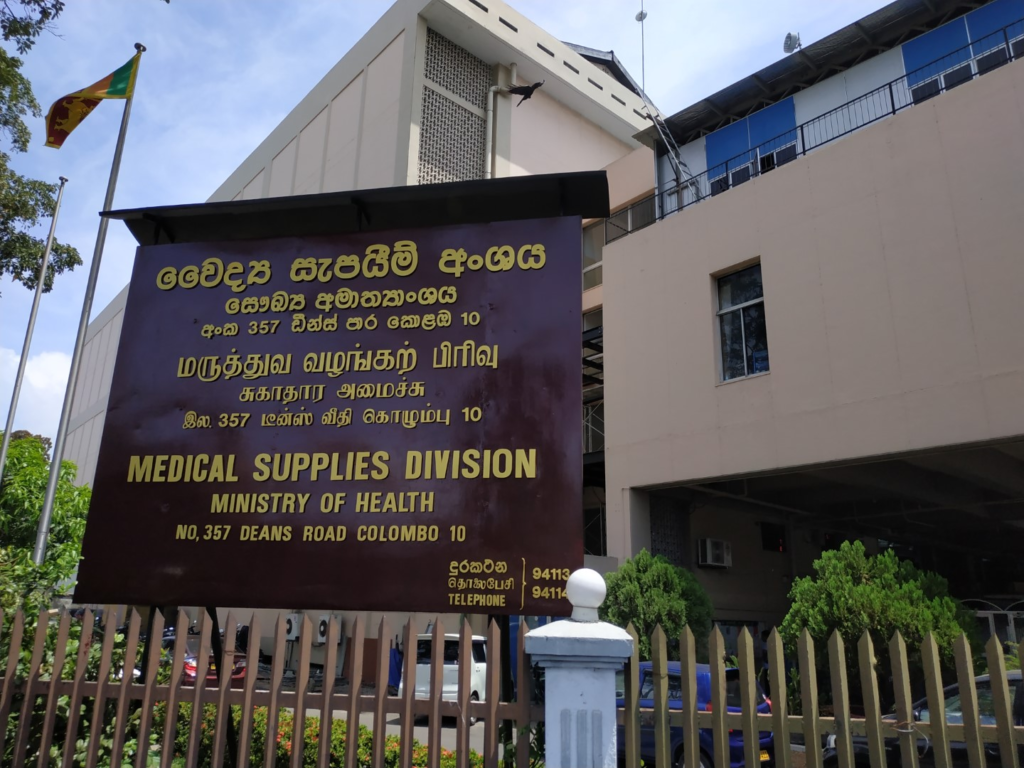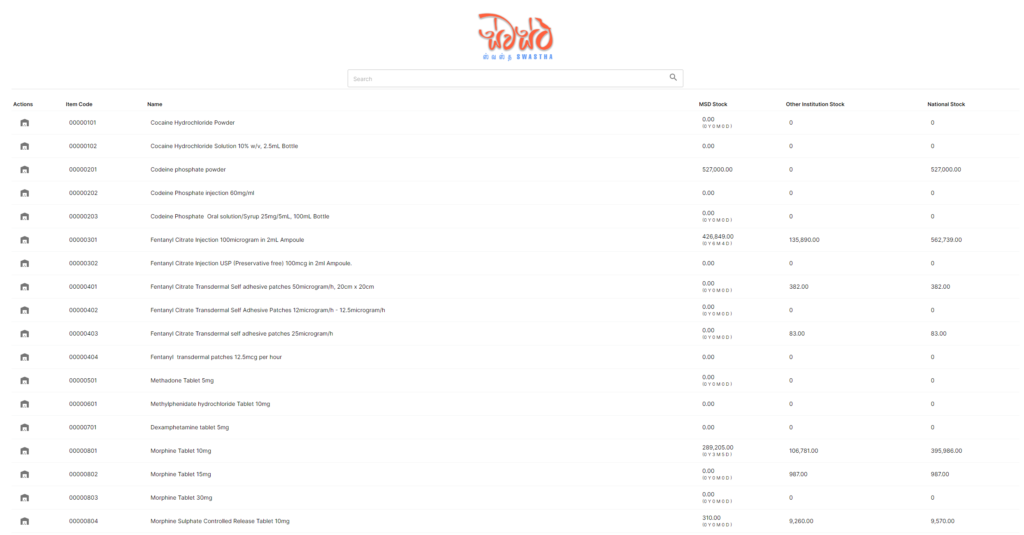The Health Ministry’s controversial inventory management system, developed by EWIS for a staggering LKR 644 million, as per figures revealed at a COPE hearing last year, has now been replaced by ‘Swastha,’ also developed by a private partner, but at a fraction of the cost.
Last year, when the ministry’s Medical Supplies Division (MSD) and the State Pharmaceuticals Corporation (SPC) were summoned before the Committee on Public Enterprises (COPE), it was revealed that they had paid LKR 644 million for an inventory management software that had taken seven years to build and implement. The system had been contracted by EWIS, although EWIS officials later claimed at a press conference that the purchase order for the system in 2008 was LKR 223 million, with an additional monthly maintenance cost of LKR 4.8 million being attributed to the company after October 2020.

This is at a time when the country’s healthcare system is suffering from a severe supply chain management issue, triggered by last year’s forex crisis. However, experts also blame the current medical shortages on the inefficient procurement methods practiced by the MSD, the SPC, and the National Medicines Regulatory Authority (NMRA). Allegations leveled towards the three institutions include a lack of accountability, transparency, and coordination.
Swastha for LKR 102 million
Speaking to ReadMe, Ministry of Health (MOH) Additional Secretary Dr. Saman Rathnayake said that the new inventory management system, ‘Swastha’, was developed by Loons Lab at a cost of LKR 102 million, including a three-year maintenance fee.
“We have finished developing the software and we hope to connect all 1,151 hospitals to this one platform. Sri Lanka Telecom (SLT) has said that they would give connection to all by the end of this year.
“We need to get computers, and that is the shortage for now. Once we get those, we’ll be able to get all to one platform. The SPC, the NMRA, and the MSD are involved in this,” Dr. Rathnayake said.
He went on to say that about 650 hospitals from 1,151 have been connected to Swastha, the new system, to date. While the development of the software has been completed, other hardware and connection issues are yet to be completed.
“In the future, we have planned to connect fiber lines to central dispensaries and small terminal units and provide at least one computer per office, so that these institutions too can be connected to the system. Local medicines suppliers will also be given the opportunity to feed their data into the system.”
Swastha is a publicly-accessible website, which notes information for all drugs in the country and categorizes their availability based on the district and hospital. According to World Bank statistics, Sri Lanka has 650 hospitals and 500 outpatient facilities, either managed by the Health Ministry or by provincial systems.
“The previous system was limited to 145 places, including hospitals and storage units. However, the new one is a web-based one. The previous one was the ‘pronto’ system – it was an Australian-based system. It was valuable for us, for the time back then. When it needs to be expanded, licenses are required. This new application is web-based,” explained Dr. Rathnayake.
Further, the system is able to record medical purchase histories of individual patients, said Dr. Rathnayake.

EWIS had developed the previous system based on Pronto Australia’s Enterprise Resource Planning (ERP) software. Although EWIS’s promotional video about the software had claimed that it could locate specific medicine at any given time as well as information about drugs, expired medicines, and shortages at hospitals, SPC officials told COPE last year that they could only enter some entries into the system which had led to an outdated inventory on medicine requirements.
Further, officials at the COPE hearing also noted that it would cost an estimated LKR 7 billion to upgrade EWIS’s software to fit the current needs of the institutions involved in the procurement and supply of drugs to the country. Questions remain about what this LKR 7 billion was needed for, especially after the revelation of a Request for Proposal (RFP) done by the SPC in 2021, which notes such ludicrous requirements as the coordination of milk powder between institutions.
Accurate forecasts
Sri Lanka imports about 80% of its pharmaceutical needs. According to the Additional Secretary, the system aims to make more accurate forecasts about the amount of stocks of a particular drug needed for a year.
Currently, the public healthcare management system is under severe criticism for its inefficient procurement processes. The Auditor General’s Special Report on Shortage of Pharmaceuticals in Government Hospitals said that, as of May 2022, Sri Lanka had run out of 311 medicines and that hospitals did not have 2,156 essential surgical items. While it identified the year’s forex shortage as the immediate reason for the shortages, it listed several other primary reasons.
The report notes the following three factors as the “main reasons for the shortage of drugs”:
- “The computer system has not been properly updated and it is not being used properly;
- Lack of proper coordination and coordination between the MSD, the MOH, the SPC, and the SPMC;
- Lack of regular monitoring of the activity and progress of orders issued to the SPC and noncompliance with the procurement schedule.”
Although the immediate repercussions of the economic crisis have slowly faded, the healthcare system continues to suffer, as shortages of drugs persist.

“Through Swastha we hope to monitor the real-time behavior of medicines so we can use real data to make more accurate estimates of our needs, and funds can be allocated accordingly,” said Dr. Rathnayake.
He further noted that other institutions which procured drugs through the Ministry, such as Parliament, would also have to use this system, to increase accountability in the drugs distribution process.
Unanswered questions
However, questions about the costly previous system, developed by EWIS, remain unanswered. Dr. Rathnayake said that documents requested by COPE regarding this system were yet to be submitted. “We think they’ll be handed over soon,” he said.
Multiple attempts to contact Health Minister Keheliya Rambukwella on the progress of the accountability process remained futile.
While Swastha may bring some relief to the healthcare management processes in the country, questions of accountability regarding public expenditure to build a system that served little benefit to the people still linger in the air. As made evident by the Auditor General’s report, a system that lacks coordination and is outdated had serious repercussions on the public healthcare management system of the country, especially as it faced the pressure of the country’s worst economic crisis to date, last year. Patients suffered without necessary medication, with many seeing it as a betrayal of the right to healthcare that Sri Lanka’s free healthcare system has been a symbol of for decades.
With Loons Lab being contracted for a three-year maintenance fee as well, it remains to be seen whether the Health Ministry has indeed learned its lesson and does not repeat past mistakes.







Who.is the Auditor if ස්වස්ථ?